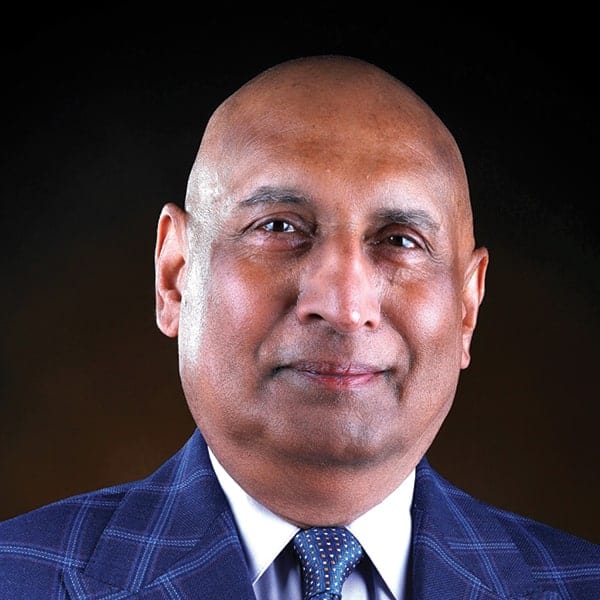By Bopanna Ballachanda
This article is a part of the July/August 2024, Volume 36, Number 4, Audiology Today issue.
In my president’s address at AAA 2024+HearTECH Expo in Atlanta, I emphasized the need for collaboration to advance the field of audiology. The theme of the message was “unity consciousness,” which calls upon each one of us to recognize the interconnected web of life in all its forms. The message highlighted the importance of working together in the United States to advance the field of audiology.

President | American Academy of Audiology
The concept of unity consciousness extends beyond the United States and resonates globally in audiology. Audiologists play a vital role in various countries, addressing the unique needs of their populations. The American Academy of Audiology has established relationships with several international professional associations. Still, our influence has been limited mostly to a few countries with access to clinical and research work. We still have a significant opportunity to expand our network to include more associations with which the Academy can forge a mutually valuable relationship. Building this relationship requires more than a single email or phone call and instead involves extended outreach to establish a bond. We can work toward mutual collaboration, and the Academy offers knowledge, experience, and valuable resources.
The field of audiology, as we know it today, originated in the United States to help the needs of people with hearing loss. The initial enthusiasm for helping individuals with hearing loss led to training programs to educate qualified professionals to address the issue and conduct research to understand the fundamental science of normal and impaired auditory systems. This research resulted in a wealth of data. It paved the way for advancements in amplification, implant devices, and systematic, evidence-based approaches to improve the lives of the population with, or at risk for, auditory and/or vestibular loss.
The American Academy of Audiology has been the home of many leaders of the audiology profession who were responsible for technological advancements, research, and the expansion of education. We benefit from the contributions of our highly qualified and dedicated members in providing expansive resources. Many of our international colleagues may lack similar resources and might welcome access to those of the Academy, whether on an individual level or through their home audiology professional association.
I urge my colleagues to join me in addressing these critical steps for building international relationships for the Academy:
- Identify international audiology associations to partner with the American Academy of Audiology. Share with us the groups you think might welcome exploring the mutually collaborative relationship.
- Actively engage in recruiting members from other countries. The primary goal is to increase membership in the United States and abroad. We have numerous membership options available, and we will continue to explore whether anything beyond our current membership categories will attract our international colleagues.
- Promote the value of membership in the Academy, including explaining its benefits and our resources.
- Encourage international audiologists, both members and non-members, to attend the Academy’s Annual Conference. We will be in the vibrant city of New Orleans in late March 2025 and hope to attract increased participation from our international colleagues.
Expanding our network will help address the needs of the global audiology community and would be a significant step toward promoting unity consciousness. Please join me in advancing the profession through the exchange of resources and expertise in a mutual collaboration.


